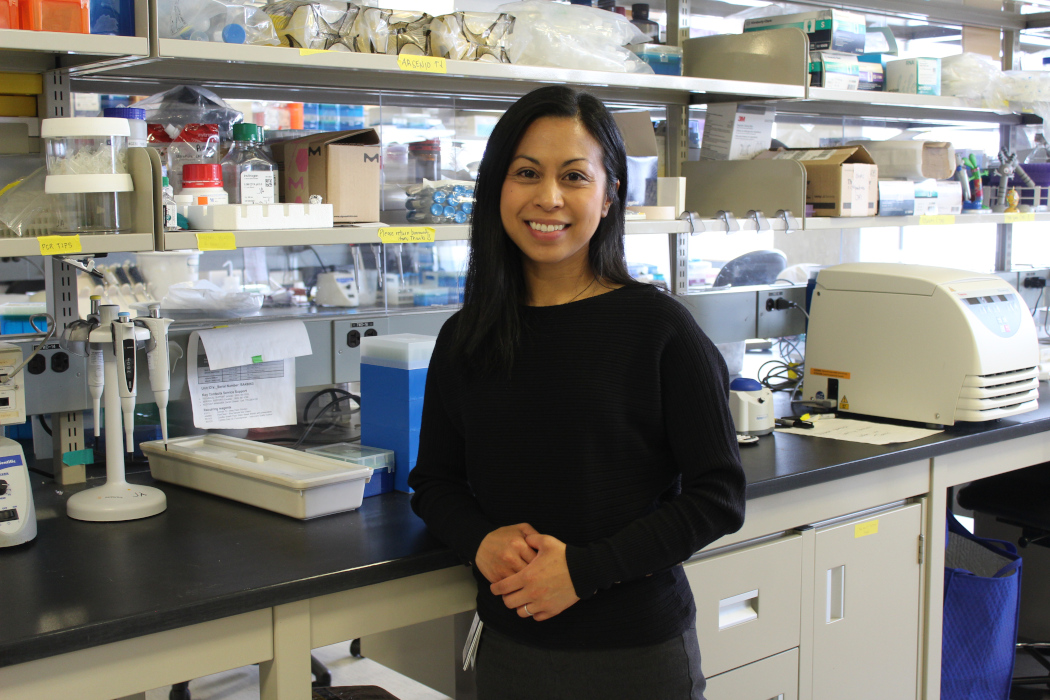
UM researcher discovers sex-related differences of immune T-cells
Celebrating Asian Heritage Month at UM
Dr. Janilyn Arsenio’s leading-edge research is trying to understand the differences between male and female immune T-cells, a type of white blood cell that helps the immune system fight germs and protect against disease.
Arsenio [B.Sc./04, PhD/11], a UM Canada Research Chair in systems biology and chronic inflammation and assistant professor of internal medicine and immunology in the Max Rady College of Medicine, and her team recently discovered that immune T-cells in males and females respond differently to chronic infection at an earlier stage of the disease.
“There is an assumption that male and female T-cells, in this context, may behave the same, but we’re finding that they are different,” said Arsenio, also a researcher with Manitoba Centre for Proteomics and Systems Biology.
“Not only are they different at the response level, but also at the transcriptional level. So, when we look at the molecular programming it’s different between males and females.”
The results of this study will help researchers better understand how to treat and prevent diseases in the future, said Arsenio, who is vice-chair of Women In Science: Development, Outreach and Mentorship (WISDOM).
“We know there are sex biases in response outcomes, and females particularly are understudied in pre-clinical studies and clinical trials, so it really brings attention to the fact that there are fundamental differences between the sexes,” Arsenio said.
Understanding sex-related differences is an emerging theme across various disciplines, Arsenio said, because it’s understudied. While her work primarily focuses on chronic viral infection, she is currently working on studies looking at sex-related differences in inflammatory diseases.
“I think our work of trying to understand these differences challenges the way studies have been done,” she said.
This innovative work all started because the environment at UM fostered her spark for science and her development as a trainee during her bachelor of science and PhD, Arsenio said. She then completed a postdoctoral fellowship at the University of California San Diego before returning to UM as an assistant professor in 2017.
Arsenio said it’s an honour to be back at UM as a faculty member because she can now do her part to mentor trainees and help spark their interest in research as well.
“Growing up, I never knew any scientists and through my undergrad and PhD there really was no one else who looked like me,” said Arsenio, whose parents immigrated to Canada from the Philippines. “Now that I’m in my position, I recognize the value of really supporting others who may be able to identify with me.”






